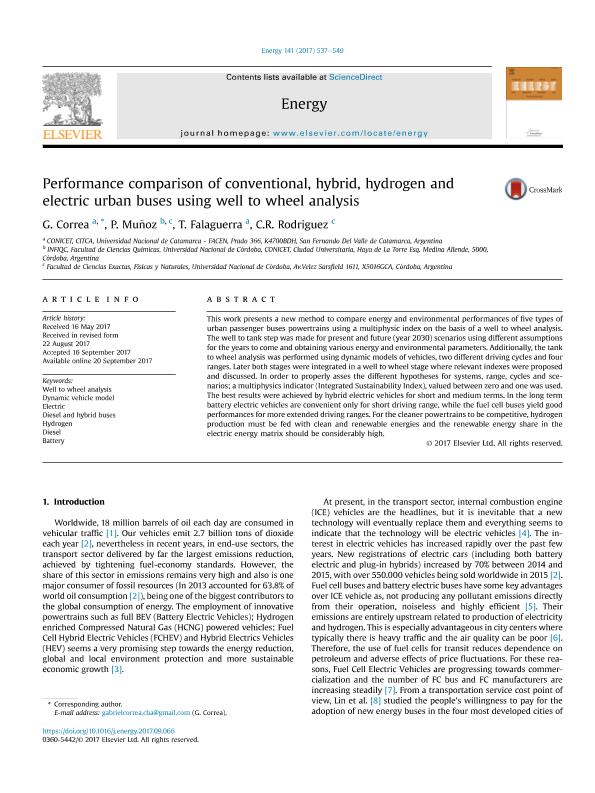Artículo
Performance comparison of conventional, hybrid, hydrogen and electric urban buses using well to wheel analysis
Fecha de publicación:
12/2017
Editorial:
Pergamon-Elsevier Science Ltd
Revista:
Energy
ISSN:
0360-5442
Idioma:
Inglés
Tipo de recurso:
Artículo publicado
Clasificación temática:
Resumen
This work presents a new method to compare energy and environmental performances of five types of urban passenger buses powertrains using a multiphysic index on the basis of a well to wheel analysis. The well to tank step was made for present and future (year 2030) scenarios using different assumptions for the years to come and obtaining various energy and environmental parameters. Additionally, the tank to wheel analysis was performed using dynamic models of vehicles, two different driving cycles and four ranges. Later both stages were integrated in a well to wheel stage where relevant indexes were proposed and discussed. In order to properly asses the different hypotheses for systems, range, cycles and scenarios; a multiphysics indicator (Integrated Sustainability Index), valued between zero and one was used. The best results were achieved by hybrid electric vehicles for short and medium terms. In the long term battery electric vehicles are convenient only for short driving range, while the fuel cell buses yield good performances for more extended driving ranges. For the cleaner powertrains to be competitive, hydrogen production must be fed with clean and renewable energies and the renewable energy share in the electric energy matrix should be considerably high.
Archivos asociados
Licencia
Identificadores
Colecciones
Articulos(INFIQC)
Articulos de INST.DE INVESTIGACIONES EN FISICO- QUIMICA DE CORDOBA
Articulos de INST.DE INVESTIGACIONES EN FISICO- QUIMICA DE CORDOBA
Citación
Correa Perelmuter, Gabriel; Muñoz, Pedro Matías; Falaguerra, Tomas; Rodriguez, C. R.; Performance comparison of conventional, hybrid, hydrogen and electric urban buses using well to wheel analysis; Pergamon-Elsevier Science Ltd; Energy; 141; 12-2017; 537-549
Compartir
Altmétricas




